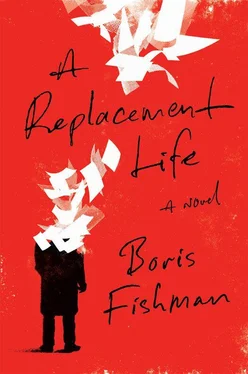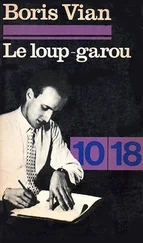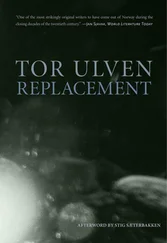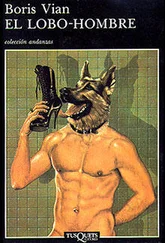“Let’s walk,” she said.
“It’s a hundred degrees outside,” he said.
“Then that’s our first clue,” she said. “We want air-conditioning.”
“It’s cool here,” he said, eyeing the bed.
She grinned. “Later. Let’s get dressed.”
He thought about doing what she had done that day several weeks before, when he had to leave for the library. Ask for five minutes, peel off her clothes, and push her down on the bed. She had shown him that you could impose on each other this way; the other would impose another time. Love was not equality but balance. On the bus ride back to his side of the borough, he had felt used but closer to her. However, he couldn’t imagine doing the same thing now. The doleful corollary to her rule was that this kind of imbalance was possible only when the rest was steady. It had been in their first week, but less so the more time they spent together, a dismal irony. He rose and got dressed.
The city that had felt mellow and forgiving as they walked from Bar Kabul to Straight Shooters on their first night together now felt hyper and choleric. The thermometer affixed to the doorjamb of Arianna’s apartment building said one hundred. However, the heat had emptied the streets, lending them the feel of a holiday weekend, which always created for Slava the illusion that the city was briefly his. “Where to?” he said, swatting at his forehead demonstratively.
They walked in the direction of the Museum of Natural History. When the Bocks of Brentwood began to visit New York with little Arianna, this was always the first stop; the Eagle liked eagles. (Sandra Bock, uncharmed by wildlife, waited in the café.) The museum plaza was empty save for gaggles of pigeons — these would survive the final desolation. Inside, in the sacerdotal dark, the light reserved for antelopes stunned in midleap, camp children mixed with Japanese and German tour groups, individual families gliding between them with the freedom of the unaffiliated. Arianna had dressed in sandals, a low-cut sailor shirt with short sleeves, and black shorts with gold buttons that ended right below the rim of her ass. Men contrived, in the gloom, to inspect this exciting genus, but even more so the women, reminding Slava of Uncle Pasha’s insistence that it counted the most when the women looked. Slava thought about Pasha with weary amusement.
Arianna, trained by city sidewalks, cut a lane through the crowds, occasionally reaching back to make sure Slava was there. He followed like a kindergartner. She stopped now and then to say something about the ibex, the lynx, the coyotes that howled in the Los Angeles hills. All the animals looked the same to Slava: horns, hooves, enlarged watchful eyes. He listened with a rancid feeling. To him, she was synonymous with the city, but all this was also known to her. He loved this about her; she brought surprise to his life. But everywhere they went, she narrated. What if he had spent his boyhood trooping through the Museum of Natural History instead of deciphering letters and dictionary-tripping at his wood-paneled desk? Would he know as much as she did? Or was it something about her?
Stopped at a display, he wrapped his arms around her from behind, her collarbone familiar against his forearm. She stopped speaking and leaned into his chest. She had straightened her hair; he inhaled its burnt, smoky dryness. He lifted the tips with his fingers and kissed her neck. “I want to go,” he heard himself say.
“You want to go home?” she said.
“I would like to show you a place now.” He said it before he was certain of the destination, but the feeling was sure.
She nodded eagerly. “But let’s stay like this for one more minute.”
Outside, the wet air attacked immediately, and he stuck out a hand for a taxi. She noted the luxury — they always took the subway. He colored, embarrassed. My credit-card statements don’t go to the Eagle, he wanted to say, but held his tongue. Did observant Arianna also notice that they had spent every night of the previous month at her apartment? No, this imbalance went unremarked. But he preferred her apartment. He was hopelessly tangled. He held the door as she climbed into the cab.
“Where are you taking me?” she said.
“Following the moment,” he said, staring at the cabbie’s brown neck. He made himself take her hand.
They rode silently. The Upper West Side turned into Midtown, then Chelsea, the West Village, Battery Park — self-conscious, he splurged for the tunnel — and into Brooklyn.
“Where are we going?” she laughed.
“You don’t love being in the dark?” he said as unstiffly as he could, though it came out stiff all the same. Now they had to keep holding hands to pretend they weren’t angry at each other. Slava stared out his window. The street slowly revealed itself as familiar — he knew it only relative to the subway, so he recognized it with delay. He had been mugged here. Grandfather and Grandmother lived nearby then, before they found the better subsidized apartment in Midwood. The mugger had been Slav — not a Jew, but still, one of theirs. He had violet splotches of sleeplessness under his eyes and a long knife under his T-shirt — comically long, with a gilt handle, like a circus saber. Graciously, he explained: His family had just spent their savings on bail, and he needed cash for a lawyer.
Slava was with Igor Kraz, the boy who would become the proctologist. He had taught Slava how to karate-kick properly, and how to masturbate into a pillow, so there was use to having him around. He was studded with diamonds. Slava had nothing more than a silver bracelet and necklace, even these like insects he wanted to brush off. The jewelry had nothing to do with them; they were broadcasting their families’ progress in America. Grandfather was upset with Slava for agreeing to nothing richer than silver. “But we can do better,” he said again and again. “Why does he wear gold and you only silver? What, we don’t have?”
When the mugger asked for their jewelry, they handed it over. The young proctologist had forgotten all his karate kicks. And when the thief asked for their addresses, to keep them from squealing, they told him the truth. He must have realized the angelfaces he had collared that day, because then he told the boys to be at the same corner an hour later with a thousand dollars. When they phoned their parents, the first thing they said was they needed a thousand dollars.
They were their parents’ and grandparents’ children. They did what they were told, parents or muggers, as they had been taught. Compliance with instructions — just say what the rules were — was as molecularly satisfying as a cool plum on a hot day. When he was little, the satisfaction of it reached to the part of Slava that burned when the tea he was drinking was too hot. So how had he turned out a forger? Had his grandfather’s fraudulence found its way into him despite the Gelmans’ best efforts to raise an obedient person? You can’t stop the blood, it goes where it wants? Maybe the Gelmans, older and wiser, understood this and had been trying to keep him close in order to shelter him from it. This part of him — his proper and corrupt soul — appeared only when he squirmed out of their reach. He wished badly to ask Arianna, because he knew she would offer something that he hadn’t considered, that would make him think about it differently. But he couldn’t. He groaned, and she squeezed his hand.
The taxi stopped on Brighton Sixth. She opened her wallet, but he covered her hand and paid. Whipped by wind from the water, the air was less thick here, the sun exhausted by the punishment it had been meting out all afternoon. They stood looking down Brighton Beach Avenue, Arianna waiting for a signal from Slava. He glared at the doomed souls wandering past them, their legs varicose and bent, the jowls swimming in fat, bellies hung over the legs like overripe fruit. (Had Otto made his way down here, to see firsthand what he was dealing with in his folders, or did he prefer to keep his distance?) Yes, they weren’t easy to be near. The mesh bags stuffed with discount tomatoes, the lumbering bodies heedless of traffic lights, the threadbare emporia that had to traffic in furs and DVDs and manicures to squeeze from the stone of this life the blood of a dollar. And these were the honest ones. After fifty years of Soviet chatteldom, they had come here to get fucked in the ass for a little bit longer before packing off to a spot at Lincoln Cemetery, even this impossible to acquire without money being passed under the table. They never even voted.
Читать дальше











